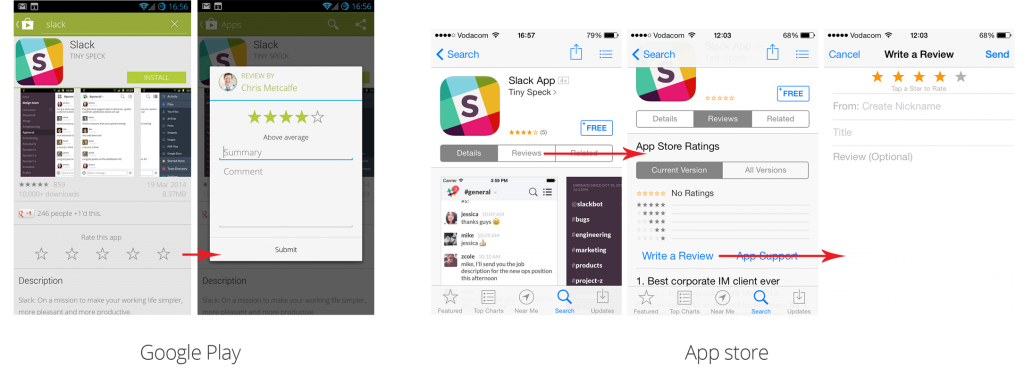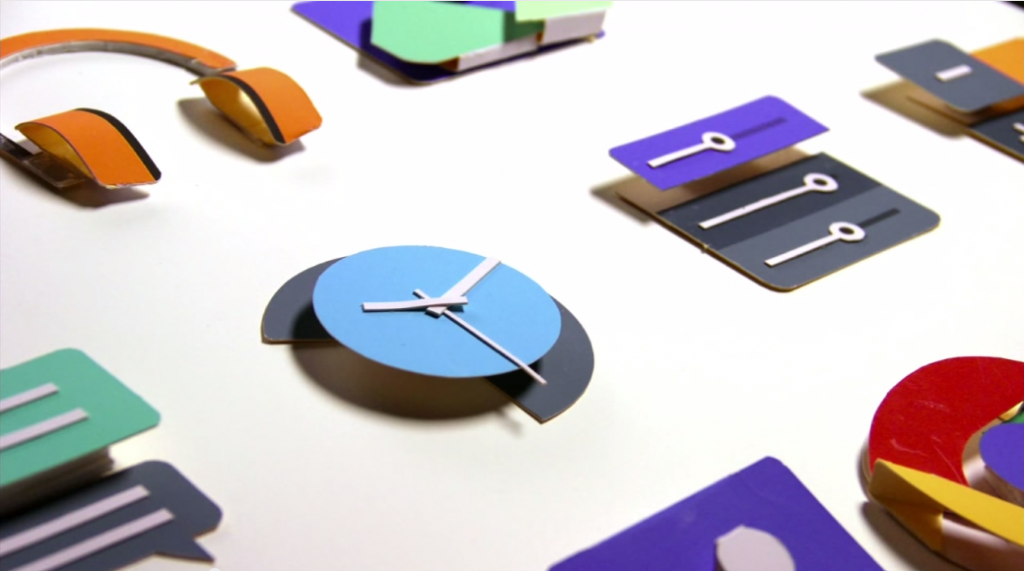Both iOS and Android suffer from Apps begging for reviews. That little popup halfway though a game or in the middle of a task saying something to the effect of, “Like this app? Review it in the app store!”. We know that reviews are really important, but is this really the only way a developer can get reviews? John Gruber and Will Shipley have been having a great discussion about this on iOS. For some reason I find that this happens a lot less on Android, and I think the reason is because the difference in the app stores.
Number of reviews
Firstly there are a lot more reviews to begin with in Google Play. My first thought was that Android users are a little more geeky and therefore are more willing to rate apps than iOS users. But now I think it is because Apple has made some very strange choices about their app store that leaves many potential downloaders with no way of knowing if an app is any good.
The most prominent decision, is that Apple limits the reviews you can see to your country. This might not be such a problem in the States but down on the tip of Africa we have much fewer people downloading and reviewing, so we are left with most of the apps in the app store unreviewed. A person’s location should not affect their opinion on an app, but Apple clearly thinks it does. Secondly, the reviews are reset with every release. I agree with the thinking behind this, highlighting the most important reviews (from the release that you are about to download), but still allowing you to view the past reviews if you wish. Unfortunately this is only a good experience when there are lots of reviews, so in the South African app store, it just lessens an already dwindling list.
Google Play on the other hand shows you all the reviews regardless of location by default, with the option of filtering the list by the latest release of the app. Adding a written review also seems a little easier in the Play store. Firstly the reviews are on the detail page, and by clicking the empty stars you are able to add a written review and a star rating. Apple puts the reviews behind a tab, and only changes the star rating if you click the empty stars (iPad only). You have to find the ‘write a review’ link to leave comments. Each step making it a little more difficult to leave a review.
Replies to Reviews
There is no easy way for an iOS developer to reply to reviews, so those one star reviews: “It’s crap, it does’t open!” not only skew the actual rating of the app but also does not allow the dev to find out more about why it wasn’t working. We have found in our usability tests that users tend look for a high star rating and then a low star rating review to get a good idea about the app. If the developer has answered a low star review, it’s almost as good as it being good review.
Beyond reviews
Google Play looks at other ways to help potential downloaders decide whether an app is right for them or not. It allows the dev to upload promotional videos with the screenshots to walk customers through the features of their app. It also gives downloaders a 15min trial on every app, during which the install button becomes a refund button. The App Store does offer refunds, but getting it is clearly not something that Apple wants customers to do as they have to request it using iTunes.
Google+
With all the great work Google is doing with their play store, the Goole+ integration really surprises me. The innovation dance: two steps forward one step back. Google has made it mandatory for you to have a Google+ account if you want to leave a review. Other than the obvious: why-should-I-have-to-sign-up-for-another-service-just-to-leave-a-review headache, there is another factor that makes this decision even worse. Many users signed up to Gmail years ago, and if they were like me, they registered a username that at the time was cool, but later on it seems a little silly. So they create another Gmail account with a slightly more up to date username. The problem: if they ever bought an app using the old email address, they can only leave a review using a Goole+ account with that as the main email. This forces them to have two (or in my case three) Google+ accounts. Surprisingly however, this does not seem to have stopped the android users from leaving reviews and therefore lowing the number of devs needing to beg for reviews.






About The Author: Chris Metcalfe
I'm not sure if I know want I want to be when I grow up. I have so far tried the entrepreneurial thing, industrial design, sound engineering and professional magic. I have been a UX designer for a decade now, so it looks like this might be it?
More posts by Chris Metcalfe